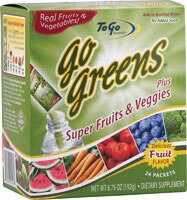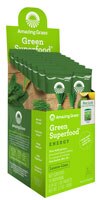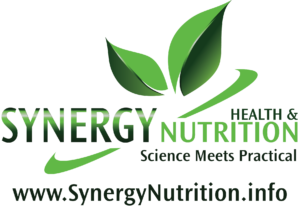I originally wrote this as a letter to my son’s football team—teammates and parents asked me why “the second half bust”: fatigue. Truly, this applies to everyone looking to have athletic energy and reduce fat. All those sugary Gatorade drinks and sweet game treats are literally killing athletic performance–and ability to burn fat for fuel. Switch to natural sports drinks and the correct game prep plans. Electrolytes are only part of the story…
And the team? Currently #1.
Want some help with ideas? Check out this site’s fabulous and “kid-tested” recipes including the now-famous “Football Chicken Satay.”
Dear Wolverines, you R-O-C-K!
Go Hard: Fueling for performance is a lifestyle. Those famous, cutting edge, professional ball players eat very carefully. They plan every bite to meet their bodies’ nutritional needs. This is just as important as their training schedule.
The serious athlete has no problem saying no to junk food, sugary sports drinks and deserts that hurt their performance. Real athletes makes sure they get plenty of the right building blocks for their bodies; winning their game depends on it.
Think about it: you train hard. That time in between training is when your body repairs and comes back with even stronger muscles, bones—and performance, right? If you don’t give it 100 percent what it needs, always, how will it rebuild after an intense training session? What does it burn while playing both offense and defense, and winning? How long can reserves last if it just gets sugary sports drinks, donuts, and fast food junk and the bank account is empty?
You can’t build the world’s most amazing machine hooking the structure together with chewing gum, mortaring the bricks with ice cream, framing it with corn cheetos, and painting with coca cola—doesn’t work.
Do you want muscle mass or fat? Do you want to fatigue or have all the energy you need?
Most professional athletes have nutrition coaches; the rest of us depend on getting and understanding the right information. Unfortunately, companies make a lot of money off the parents of children and teenagers–not kidding: they target their marketing to *you*.
These money-driven companies put a tremendous amount of bad information out there seeking the almighty buck. Search the internet and you find old fads like “carbo-loading” (and the products you can buy to do that). “Backed by research” usually means a company scientist researching your favorite flavor, not the most healthful foods or natural sports drinks.
You are an athlete! Athletes make changes in their routines. Athletes give their bodies what their bodies need to perform, not because it’s advertised, or because they see their buddies doing it—but because it works. So it is best if you know why something works. Most of this post is info that will help you know why I’m saying what I am saying.
Working my guidance into your weekly routine will help in more ways than athletics.
So even if you haven’t (yet) made elite status and are simply trying to compete in your class, there are a few key things to know:
- First of all, what you eat and drink throughout the week will greatly affect your game. You cannot get what you need in just the pre-game meal or during-game electrolyte drinks.
- Secondly, living on a diet of sugar, carbohydrates and processed foods will put on weight in the form of fat and NOT muscle and WILL create nutritional deficiencies. More than anything, this sort of diet will hurt your game, your overall health, can cause allergies / food sensitivities and can even affect behavior and academic performance.
- Thirdly, it’s important to drink enough water all week—this will affect your game.
An important word on sugar: “bad!” Sugar from the sugar cane plant (even organic, turbinado, raw…) *and* sugar from the corn plant (also called corn sugar, high fructose corn syrup) both cause immediate inflammation in our bodies.
Choose natural sports drinks. During and after intense contact sports, the last thing to do is put something that causes even more inflammation in your body. It could make you more likely to be injured and will slow down or even prevent healing if you do happen to get injured. Get your electrolytes in other ways; it is the sugar and carbs that are causing fatigue.
Want to build muscle? Just say no to sugar and starchy foods after the game (or training session):
Important point #1: there is a two-hour window of time *after* intense exercise when the body burns fat as fuel, creates a leaner you, and builds muscle and bone.
Important point #2: consuming sugar, fruit juices, and starchy foods like breads and pasta within this two-hour window will decimate these benefits and tell your body to pack on the fat instead. Again, choose natural sports drinks and non-starchy whole foods.
Hydration tips:
- Drink by a schedule-not by thirst. Drink a glass of water* when you wake up, just because…
- Make sure you get enough water* well before you arrive at the game; days before. Otherwise, on game day your body is still trying to “catch up.”
- During the week, monitor your urine color. If it is pale like lemonade that’s a sign of good hydration. If it is dark like apple juice; drink more fluids. Drink natural sports drinks; avoid the sodas and Gatorades.
- How much do you need during the game? Weigh yourself before and after to gauge how much water weight you lost. Drink 24 oz fluid for each pound lost. 8 oz = 1 cup.
- Drink natural sports drinks and clean water* throughout the game; don’t dehydrate.
*drink filtered, unchlorinated water.
Important point #3: Gatorade has so much sugar in it that your body cannot actually absorb the electrolytes you think you are getting. That surge in energy is from the sugar. It wears off pretty fast, and then you crash—the game hasn’t ended but you have.
In fact, one peach has more potassium than a bottle of Gatorade—and won’t crash you.
What to eat:
Eating high performance food all week gives you energy to practice better which will ultimately help you play better when it really counts. Good food is fuel and also lets your body store all the nutrients you need to draw on during the game.
Your meals all week should be mainly protein (meats, eggs, nuts), lots of vegetables and some fruits. Definitely eat breakfast; definitely avoid the pizza, cereals and deserts (see three important points above).
Go Hard!
Here are the rest of the details: Carbo-loading is a lie: eating sugar (or carbohydrates, same thing) causes a fast spike in blood sugar. High blood sugar stresses the body in many ways and is toxic. In response, the body makes the hormone insulin to move the sugar out of the blood into cells. It also signals the body to convert the extra sugar and store it as fat.
For us athletes, interval training (competing in a game, wind-sprints…) starts a complex interplay of hormones and nervous system coordination that promotes bone growth and strength, promotes muscle mass, promotes fat burning, promotes blood sugar stability, and boosts the immune system.
And here is what sugar does to that:
Yes, both carbohydrates and fat are burned during exercise–the more you train, the more you burn–*both* carbs and fat. BUT!! A University of Virginia research team demonstrated that the actual fat burning takes place during a 2-hour period after the anaerobic (high intensity interval) workout. You burn fat during the exercise recovery phase.
They also showed that a high sugar meal (including starchy food carbohydrates) after working out, or even a Gatorade-like recovery drink (containing high sugar), will stop the fat-burning and muscle building (called the anabolic building up phase). You can work out for hours, then eat a high sugar candy bar, “energy” bar or have a high sugar energy drink, and this will shut down the bonus of enhanced fat burning and muscle building after working out.
This is important when thinking about “rewards” after the game and also choices throughout the week. And I hate to say it, but if you read the labels you’ll find cane sugar or High Fructose Corn Syrup added to almost everything, even chicken broth. We’ve become an addicted society; withdrawal takes a few days, determined and patient parents L and not having sugary treats in the house.
And if that isn’t enough, there are 143 more reasons to dump sugar here: http://dumpsugar.org/2011/05/05/143-ways-sugar-ruins-your-health/ (and Dr. Nancy Appleton backs it up with plenty of scientific references)
Getting those electrolytes: The truth about sports drinks.
Advertising says that if we exercise, we NEED sports drinks to replenish ourselves—is this true?
Our nervous system and muscles run on electrolytes—you are an electrical machine. When electrolytes run low an athlete may develop muscle cramping. Even before that happens they can get tired, not think clearly… it is crucial not to lose too many electrolytes like sodium, potassium, calcium and magnesium which are lost when we sweat.
The real question is how many electrolytes are lost during a cool-weather game like football? The answer: Unless there is already an electrolyte deficiency, the amount lost during the game is not so much to affect performance. That said, giving electrolytes isn’t a bad thing either and just thinking that it helps performance may help performance.
Unfortunately, the high sugar content of most sports drinks prevents absorption of the electrolytes you are trying to replace. Worse, sugar stimulates the kidneys and we lose water (diuretic)—also, most commercial sports drinks are loaded with chemicals and additives that impact health. The only thing research shows… is that kids drink more sports drinks than water during physical activity because it “tastes better”—there is no research that indicates these drinks will help performance. There is research that shows sugary drinks lead to a sugar crash and earlier fatigue in athletes that avoid sugar (and pre-game carbs for that matter).
Better electrolyte options:
- Try coconut water (not milk). It is loaded with the five essential electrolytes that athletes need—including sodium, potassium, magnesium, calcium and phosphorous. It is very low in sugar and the sugar it does have is at least a whole food with all the active enzymes and the type of sugar it does contain is different than the sugar cane plant and the corn plant and doesn’t appear to cause an inflammatory response like these two bad boys. It doesn’t taste like Gator Aid; if you’re wanting that taste, forget it. But most people seem to like it.
- Another option is to squeeze lemons into their water. Believe it or not, 2 tablespoons of lemon juice have the same amount of potassium as an 8 oz sports drink. Potassium is usually lost before sodium.
- Drink plain water and eat a peach. 8 oz of a typical sports drink contains 30 mg of potassium. A typical ripe peach has 333 mg and it also contains other minerals and vitamins.
Electrolyte and game refueling ideas:
Yes, these pre-teens are working on their pre-growth-spurt appetites and probably do get hungry an hour after breakfast if not midway through their game.
- During a game (or even training) digestion is inefficient, so give the gut something easy to deal with. Ripe fruits are great; stay away from starchy grains, breads, pastas that cause digestive stress, intestinal upset—gas, bloating, and even diarrhea.
- Peanut butter* on a ripe fruit. Peanut butter has 300-400x the potassium of the typical 8 oz sport drink, if it is salted it is also a good source of sodium. It is pretty easy to digest and also is a great source of proteins and other nutrients.
*Note: buy organic, natural peanut butter—no added sugar. The only ingredients should be nuts and salt to avoid the blood sugar spikes and partially hydrogenated trans-fats.
And bananas? A banana has three times the sugar and carbs as a peach. While it also has a good amount of potassium, the high sugar limits how much actually can be absorbed and does create an unwanted level of blood sugar, insulin spike, fat accumulation, thyroid stress… and it’s hard to digest. I know, it has been promoted as a good source of potassium.
Eating for Recovery—is really a misunderstanding: When athletes eat all week for performance; training recovery takes care of itself (except extreme endurance sports–that is a bit of a different story).
Here’s an interesting reference:
Rehydration after exercise with fresh young coconut water, carbohydrate-electrolyte beverage and plain water. Saat M, Singh R, Sirisinghe RG, Nawawi M. J Physiol Anthropol Appl Human Sci. 2002 Mar;21(2):93-104.
[contact-form-7 id=”1851″ title=”Question form blog page”]
Copyright © 2011. Marie Sternquist. All Rights Reserved.












What a nice and useful piece of info. I’m happy that you shared this healthful information with us.
Please keep us informed like this. Thanks for sharing.
I’m very pleased to find this site. I need to to thank you for your time just for this fantastic read!!
…and the healthy recipes, I definitely like every little bit of it. I have you saved to
fav and facebook so I can get your recipes delivered daily.
Pingback: Sneaking sugars into kefir?? - Our Nutrition Kitchen.com
Right away I am going to do my breakfast, after having my breakfast coming over again to
read other news.
Pingback: Sleep Nutrition: Sleep Soundly vs Toss and Turn Foods | Our Nutrition Kitchen
Pingback: Performance Drink – Renewing Indispensable Electrolytes | e-Prescribe.biz
Pingback: Homemade Energy Drink Tips And Answers | home made energy drink
Pingback: Performance Drinks Comparison With Athletes In Mind | e-Prescribe.biz
Pingback: Questions And Answers On Homemade Energy Drink | Solar Power For Energy
Pingback: Holistic Nutrition Pointers To Help You Drop Your Sugar Addiction | e-Prescribe.biz
GOOD stuff !!! I need to go back and read labels … again … for the nth time. Thank you for this. More ?? George
Hiya!
and thank you. Too many parents bring after-the-game sweets thinking they are rewarding their children. They just don’t understand how much that impacts health. Plus, the “energy bars” and Gatorade at half-time were creating a 4th quarter “bonk.” So I hope this helps parents and athletes who are not so fortunate to have a personal nutrition coach sort out their priorities and the importance of good nutrition. My team parents have been just great about implementing this and the 4th quarter bonk is nowhere to be seen. The boys are learning choices that help them beyond their game.
More? Absolutely. Just not sure where to start, but if there are specific questions I’ll see what I can do to answer them.
Yours in Health,
Marie